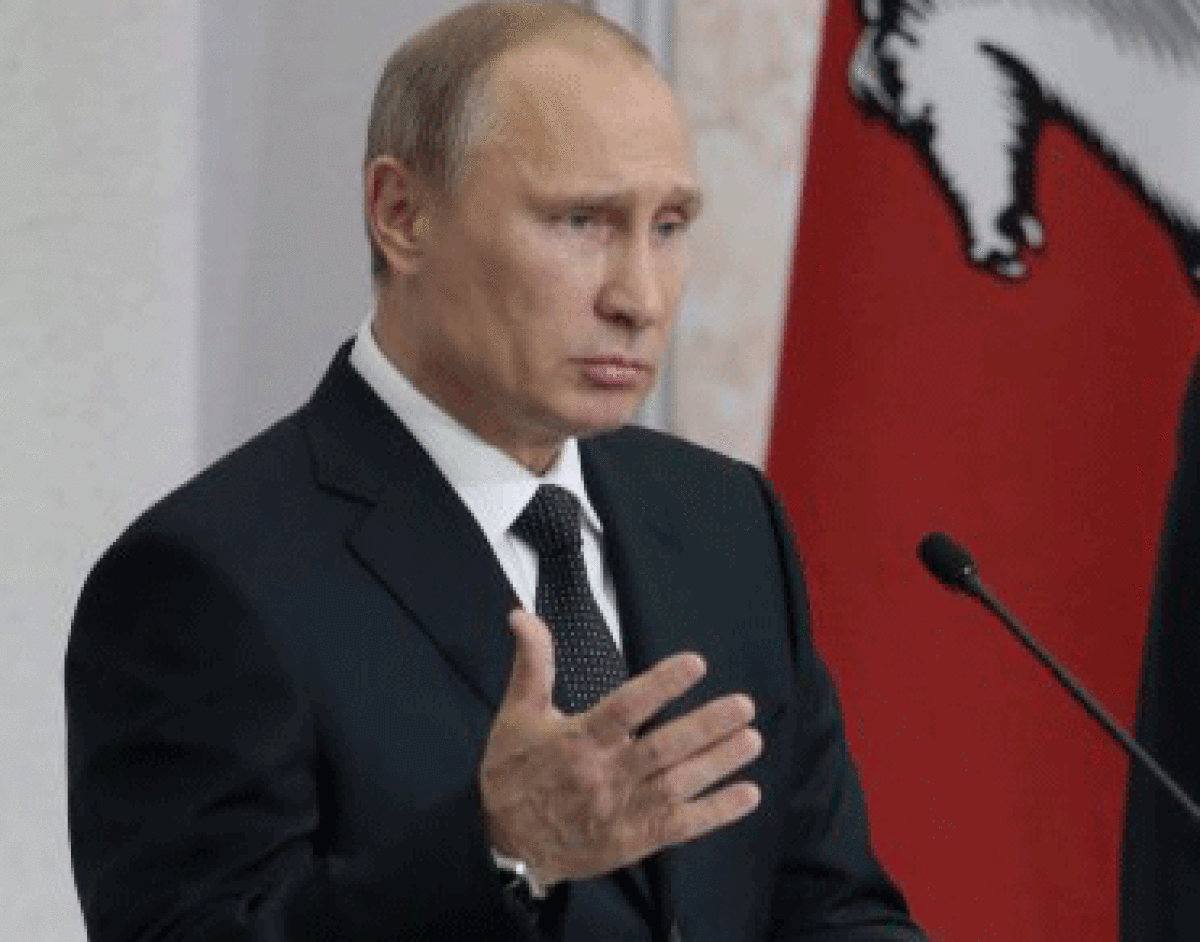American exceptionalism: We think we’re special. Is that so wrong?

President Obama, Tuesday night in the East Room: “Terrible things happen across the globe, and it is beyond our means to right every wrong. But when, with modest effort and risk, we can stop children from being gassed to death, and thereby make our own children safer over the long run, I believe we should act. That’s what makes America different. That’s what makes us exceptional. With humility, but with resolve, let us never lose sight of that essential truth.”
Russian President Vladimir Putin, Wednesday night in the New York Times: “I would rather disagree with a case he made on American exceptionalism. ... It is extremely dangerous to encourage people to see themselves as exceptional, whatever the motivation. There are big countries and small countries, rich and poor, those with long democratic traditions and those still finding their way to democracy….We are all different, but when we ask for the Lord’s blessings, we must not forget that God created us equal.”
Oh, no you didn’t.
In his direct appeal to the American people, Putin denied that the government of Syria used chemical weapons against its own people. He claimed that the culprits were opposition forces trying to provoke an outside military response. He said an American missile strike could inflame the violence in Syria, unleash a new wave of terrorism and potentially destabilize the Middle East, North Africa and, yes, the entire world.
All right. Fine. That’s his opinion.
But the Russian president’s barbed dismissal of American exceptionalism?
How. Dare. He.
“It’s an outrage,” exclaimed Rush Limbaugh on Thursday. “Of course he would say this, he’s a communist!”
In the last few years -- especially in the last presidential campaign -- the term “American exceptionalism” has come to be used by Republicans as a weapon to bludgeon Democrats who have the temerity to suggest that maybe, just maybe, this country doesn’t have all the answers.
President Obama suggested as much in 2009, at a NATO summit in Strasbourg, when he was asked by a European reporter whether he believed in the concept:
“I believe in American exceptionalism,” he replied, “just as I suspect that the Brits believe in British exceptionalism and the Greeks believe in Greek exceptionalism. I’m enormously proud of my country and its role and history in the world.”
(Every time I read Obama’s quote, I think of the father in “My Big Fat Greek Wedding” who traced all human advancement to Greek culture. Also, the Magna Carta.)
By the time the 2012 presidential race rolled around, the term, which had been promoted by American neocons bent on imposing democracy on undemocratic countries, had become a kind of all-purpose signifier of patriotism.
Onetime Republican vice presidential nominee and Fox News commentator Sarah Palin was one of the most ardent fans of the phrase. “We need to quit preachin’ to the choir, we gotta get out there and talk to independents -- just normal, average everyday Americans who want that American exceptionalism to be part of our lives again,” she said on television last fall.
At the Republican National Convention last summer, former Secretary of State Condoleeza Rice invoked the phrase as well, noting that “we are the most successful economic and political experiment in human history. That is the true basis of American exceptionalism. You see, the essence of America, what really unites us, is not nationality or ethnicity or religion. It is an idea.”
Historians say it was Frenchman Alexis de Tocqueville who first used the word “exceptional” to describe the new nation in the early 19th century.
But the actual phrase, they say, was coined in the late 1920s by Soviet dictator Josef Stalin to dismissively describe the refusal of the relatively optimistic American proletariat to engage in revolution. Here’s a fun Atlantic essay on the topic.
Limbaugh may be wrong about whether a communist can grasp the meaning of the phrase, but he’s right that Putin is off base. When Obama invoked “exceptionalism” at the White House the other night, he was talking about America’s moral obligation as a world power, not the innate superiority of its citizens.
“It is not that we are better people, it is not that we are superior people, it is not that we are smarter people,” said Limbaugh. “It is not that God loves us and hates everybody else, it is not that God prefers us. American exceptionalism has nothing to do with anything but freedom and liberty.”
And though conservatives like Limbaugh never play Obama’s full quote from that NATO summit in Strasbourg, I have to think that deep down, even he would agree with what the president said next:
“The United States remains the largest economy in the world,” the president said. “We have unmatched military capability. And I think that we have a core set of values that are enshrined in our Constitution, in our body of law, in our democratic practices, in our belief in free speech and equality that, though imperfect, are exceptional.”
ALSO:
9 crazy Southern California police car chases
Long Beach mother was killed in revenge plot, police announce
Twitter: @robinabcarian
More to Read
Sign up for Essential California
The most important California stories and recommendations in your inbox every morning.
You may occasionally receive promotional content from the Los Angeles Times.











